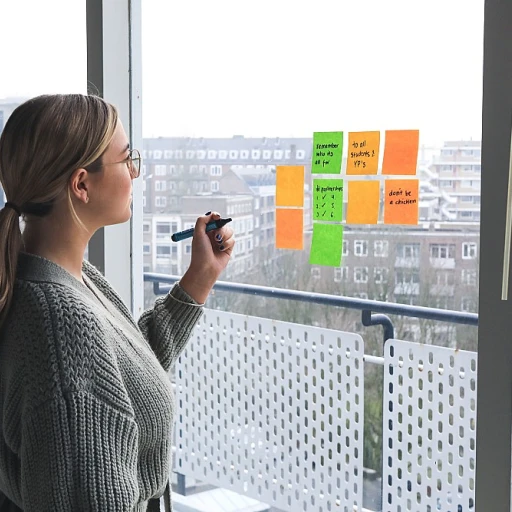Understanding the Unique Challenges in New Zealand
Addressing Specific Challenges
The education sector in New Zealand presents its unique set of challenges, making effective project management an essential skill. From school construction projects to educational initiatives, understanding and addressing these nuances is crucial for success.
One significant challenge lies in accommodating diverse perspectives and requirements from various stakeholders, including teachers, school administrators, and project managers. Clear communication and collaboration among all participants will be vital. This requires utilizing effective management tools to ensure that everyone remains aligned and engaged throughout the project duration.
Time management is another key factor. Educational projects often encounter deadlines that align with school calendars, demanding meticulous planning and timely execution. Starting with a well-structured project plan can help navigate these time constraints effectively.
Additionally, the geographic diversity and decentralization of schools in New Zealand can complicate resource allocation. Here, a well-organized plan project and thoughtful allocation of resources are essential for seamless execution.
For professionals looking to strengthen their management skills, pursuing a control account manager certification can be beneficial. It provides valuable insights and competencies that can elevate the quality of project management within the education sector.
By keeping these challenges in mind, management systems can be tailored to help achieve the desired outcomes more effectively.
Setting Clear Objectives and Expectations
Defining Clear Goals and Establishing Mutual Understanding
In the dynamic landscape of New Zealand's education sector, setting precise objectives and realistic expectations is crucial for the success of any educational initiative. A well-defined project plan serves as the foundation for effective educational projects. Through strategic planning, project managers can ensure that the objectives are aligned with the broader educational goals and tailored to the unique needs of the stakeholders involved. Clear and agreed-upon goals are essential to guide the school project from start to completion. This involves collaboration among school administrators, teachers, and other team members, each contributing their expertise to form a cohesive education plan. Taking the time to involve participants will help clarify roles and responsibilities, fostering a sense of ownership and enthusiasm amongst the team. The success of the project hinges on having a practical management system in place. This necessitates creating a project plan template, which functions as a shared reference point to monitor progress and make necessary adjustments. It ensures every construction manager and project manager easily accesses and understands the expectations, leading to a streamlined and coordinated effort. An essential aspect of this process is understanding the anticipated outcomes from educational projects. Aligning team members' efforts with the project's objectives not only enhances their commitment but also ensures that their work is directed towards a unified goal. As a consequence, the planning project becomes a driving force for achieving educational excellence. For a deeper understanding of personal and team mastery in project management, you can explore our guide on unlocking your potential through personal mastery at Magic Office's blog.Effective Communication with Stakeholders
Facilitating Open Dialogue and Collaboration
Communication is the cornerstone of successful project management, particularly within the realm of educational initiatives. To ensure the smooth progress of a school project or any other educational endeavour, it's imperative that stakeholders—including teachers, students, and administrative staff—are kept in the loop. Developing an effective communication strategy is crucial, and this begins with identifying the key objectives and expectations from the onset.
Engaging with all participants and maintaining a two-way dialogue will help to align the project plans with the needs and goals of those involved. Incorporating structured communication channels such as regular meetings, and updates can create an inclusive atmosphere where every team member feels valued and heard.
Utilizing modern management tools can greatly enhance the flow of information and foster collaboration. Tools such as project management platforms allow for real-time updates and easy access to the project plan, making sure every stakeholder is aware of the current state and any changes that may arise. These tools not only facilitate communication but also enhance management skills by keeping everything organized and accessible.
It's also vital to consider the accommodation of various communication preferences and time zones, especially if educational projects involve teams spread across different regions, perhaps even as far as Barcelona. Establishing a flexible communication system that respects diverse needs will ensure that every team member stays engaged and committed, ultimately contributing to the project’s success.
In essence, effective communication goes hand in hand with other aspects of project management such as resource allocation and planning. By establishing clear channels and fostering open dialogue, you can ensure the educational journey is smooth and successful for everyone involved. For more guidance on enhancing your management skills, consider exploring strategies for unlocking your potential, provided in the mindful office manager's guide.
Resource Allocation and Budget Management
Aligning Resources for Success
Effectively managing resource allocation and budget is a critical component of successful educational projects. In New Zealand, the unique educational landscape requires office managers to have a robust plan in place to ensure that resources are aligned with the objectives set forth in project planning. One of the primary tasks in resource management is understanding what resources are at your disposal and how best to allocate them. This goes beyond just financial resources; it includes personnel, technology, and instructional materials which are integral to the smooth operation and success of the school project. By managing these resources efficiently, you will aid in the seamless progression from the starting phases of a project to its conclusion. In the course of planning educational projects, office managers should regularly evaluate available resources to ensure they align with the overall project plan. This requires maintaining clear communication lines with educational stakeholders and team members involved in the project. Holding regular meetings with the project management team and participants will ensure everyone is on the same page regarding available resources and any necessary accommodations. Resource allocation also depends heavily on having a solid understanding of the budget management skills necessary to oversee educational initiatives. Establishing a comprehensive budget plan early in the project management phase will help reduce the risk of unexpected expenses cropping up during the project’s progression. It’s crucial to create budget allowances to accommodate unforeseen costs that may arise due to shifts in educational priorities or the addition of new project components. Another important aspect of resource allocation is the use of project management systems and tools. Employing software that allows for the tracking of resource usage can provide valuable insights into how resources are being utilized and help identify areas where efficiency can be improved. This technology will not only assist in optimizing the work process but also in adjusting the project plan accordingly when resources become constrained. In conclusion, resource allocation and budget management are central to the success of educational projects. By thoroughly planning resource distribution and utilizing effective management tools, school project managers and their teams can ensure that educational infrastructures are supported and sustained. This aligns with the broader project management objectives and aids in creating a conducive environment for learning and development across New Zealand’s education system.Implementing Technology for Project Management
Leveraging Technology to Enhance Project Logistics
In today’s digital age, integrating technology into project management stands as a cornerstone for the successful execution of educational initiatives. Implementing the right management tools can streamline planning and execution processes, benefitting both project managers and team members.- Facilitating Effective Coordination: Modern project management systems can significantly enhance coordination among stakeholders involved in educational projects. These tools assist project managers in ensuring that all aspects of a school project are meticulously organized, from start to finish.
- Efficiency in Tracking Progress: By using technology to monitor project plans, managers can keep track of each phase of the project, ensuring the school construction is proceeding as planned and on time. This helps in identifying bottlenecks and accommodating adjustments in real time.
- Enhancing Resource Management: Proper management tools allow teams to allocate resources efficiently and stick to budget constraints. By utilizing digital platforms, project managers can access comprehensive views of resource distribution, which in turn can lead to more informed decision-making in managing projects.
- Improving Communication: Effective communication is key when overseeing educational projects. These technological solutions can help teachers, school administrators, and other participants to collaborate seamlessly, sharing important updates and modifications that might affect the project timelines.
Evaluating and Reflecting on Project Outcomes
Reflection and Performance Assessment
Evaluating and reflecting on project outcomes is often a step that separates good managers from great ones. This phase involves a thorough analysis of all aspects of the project, from planning to execution, to ensure continuous improvement in future educational initiatives.- Establish Metrics and Indicators: At the outset, it's crucial to have specific criteria for success. These metrics could include timely completion, budget adherence, and stakeholder satisfaction, among others.
- Feedback from All Participants: Engaging with stakeholders, team members, and even participants will provide invaluable insights. Feedback loops can help refine future approaches, enhancing the overall effectiveness of the school's project management.
- Review Management Tools: Analyze how well current project management tools and systems supported the educational project. Did the management system facilitate communication and resource allocation? Was the project plan adhered to, and how effective was the accommodation of unforeseen changes?
- Reflect on Educational Outcomes: Align the results with the initial objectives to evaluate if educational goals were met. This could involve assessing the work quality, engagement levels of students or teachers, and any long-term benefits to the school.
- Documentation and Reporting: Compile a comprehensive report outlining the achievements and challenges faced. This documentation assists in future planning projects and serves as a reference for other project managers or team members starting similar initiatives.









